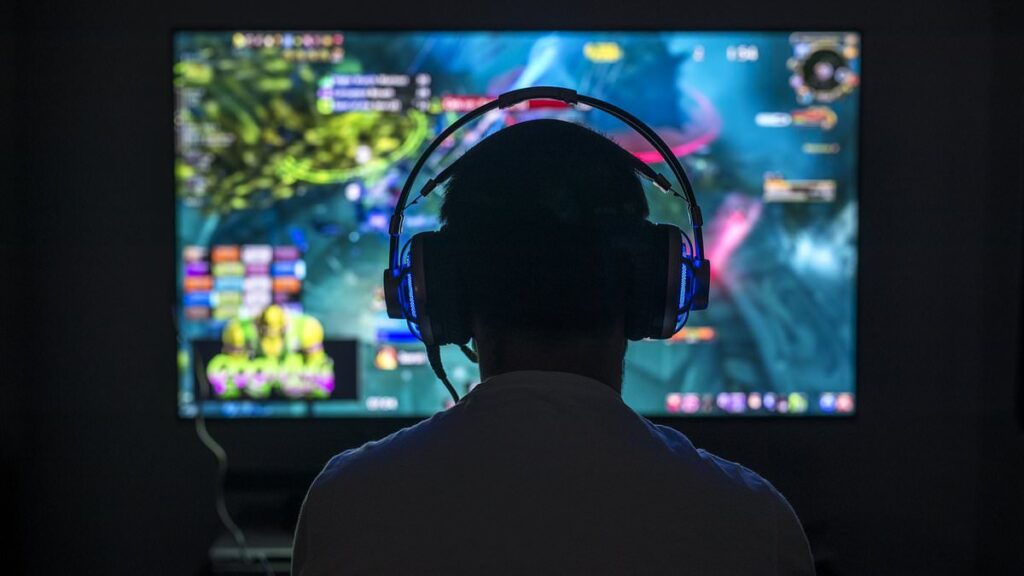By Emily Joshu, Dailymail.Com Health Reporter
07:01 March 20, 2024, updated 07:01 March 20, 2024
- Men who spent more time playing video games had a higher risk of ED
- This risk was not increased by other sedentary activities such as watching TV.
- Read more: Want to prevent impotence? Get as many erections as possible
It's well known that spending too much time gaming can lead to weight gain and sleep problems.
But research suggests that problems can arise in the bedroom.
Chinese researchers surveyed more than 200,000 men engaging in “leisure” activities such as watching TV, going for a drive, and playing games on the computer.
The research team measured the participants' sex hormones, as well as their depression and anxiety.
Researchers found that for every 1.2 hours per day spent playing video games or doing other leisure activities on the computer, the risk of erectile dysfunction (ED) increased threefold. .
There is also “no evidence to suggest that watching TV or driving for leisure increases the likelihood of ED,” suggesting that the problem is not just watching. There is.
The study found that computer use was associated with lower levels of follicle-stimulating hormone (FSH), which stimulates sperm production, in participants' blood.
“The present study provided substantial evidence of a positive causal relationship between computer use and the risk of erectile dysfunction,” the authors wrote.
“However, further research is needed to establish a definitive causal relationship.”
Although the researchers did not say what leisure activities the participants engaged in while on the computer, previous studies have shown that men who regularly watch porn are more likely to be affected by porn's unrealistic expectations. It has been found that men are more likely to develop ED because they lose interest in regular sex.
The researchers studied 223,805 men between the ages of 40 and 69, most of whom (217,630) were controls.
They then measured levels of testosterone and FSH, other hormones such as prolactin and luteinizing hormone (LH), and levels of depression and anxiety.
It turns out that spending 1.2 hours of leisure time at the computer increases the risk of developing erectile dysfunction by 3.5 times.
However, going for a drive or watching TV did not make participants more likely to develop ED.
The researchers found that the participants had low FSH levels. FSH is a hormone produced by the pituitary gland in the brain that affects the function of the ovaries in women and the testes in men.
In men, it travels through the bloodstream and binds to receptors in the testicles.
In conjunction with testosterone, FSH stimulates and maintains sperm production.
In addition to erectile dysfunction, low FSH levels are also associated with low sex drive, infertility, and low energy.
The researchers noted that the study had several limitations, including only evaluating men between the ages of 40 and 69, even though ED is most common in people over 70. .
Furthermore, it was not clear how severe the ED was.
“Thus, we can only conclude that the more time you spend on a computer, the more likely you are to develop ED, but we cannot determine your risk of developing a particular type of ED or how severe your ED is. “We were unable to do so,” the researchers said. I have written.
Erectile dysfunction is extremely common, affecting approximately 30 million men in the United States today, nearly twice as many as in the early 2000s.
In what some describe as a “silent epidemic,” the number of men seeking treatment for erectile dysfunction has soared in recent years, a study tracking filled-in scripts for erectile dysfunction has found.
This increase has been linked to higher rates of obesity, poorer mental health, and excessive consumption of pornography.
Erectile dysfunction is the inability to get or maintain an erection long enough to have sex.
This condition can also lead to a lack of interest in sex.
For many people, this condition is a short-term symptom caused by factors such as daily stress, alcohol, and fatigue, but for some people, the condition is experienced over a longer period of time due to physical and/or mental issues. There are some too.
The study was published Wednesday in the journal Andrology.


